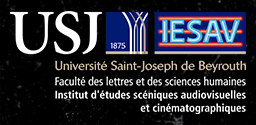Regards
Keywords
global modernism, modern and contemporary art of the Middle East, North Africa and South Asia, spirituality in art, modernity, coloniality, decoloniality
Document Type
Article
Abstract
The present article critically examines the spiritual–secular binary in modern and contemporary art from the SWANA region and by artists with heritage from that region who live or have lived elsewhere. Given this binary’s origin in the European Enlightenment’s view of religion, and its epistemic canonization through post-Enlightenment ideas on art and culture in the colonial era, this examination is carried out within the framework of current decolonizing art historical discourses and their postcolonial background.
The reflection begins with a key moment of global modernism, underpinned by the colonial diffusion of secularism. It then proceeds to explore the cultural shifts of postmodernism and contemporaneity, marked by a renewed interest in spirituality across the region. This investigation allows for the identification and disentanglement of a knot of epistemic problems, theoretical misconceptions, and untenable contradictions in the decolonizing art historical literature.
In particular, it uncovers a slippage toward an anti-colonial ideology that attempts to rewrite history at the risk of minimizing foundational historical facts. Central to this problematic is the misconstrued concept of modernity, exclusively and reductively linked to hegemonic Euro-American modernist thought and its brand of secularism.
Offering a fresh look at the momentous cultural and artistic events of the modern and contemporary period, and a much-needed redefinition of the chief concepts at stake, this essay opens up new directions for research.
Résumé
Le présent article examine de manière critique le binôme spirituel–profane dans l’art moderne et contemporain de la région du Moyen-Orient, de l’Afrique du Nord et de l’Asie du Sud-Ouest, ainsi que dans les œuvres d’artistes issus de cette région mais ayant principalement exercé ailleurs.
Cet examen est effectué dans le cadre de la décolonisation actuelle de l’histoire de l’art et de son arrière-plan postcolonial, compte tenu de l’origine de ce binôme dans la vision de la religion de l’Europe des Lumières, et de sa canonisation épistémique à travers les idées post-lumières sur l’art et la culture à l’époque coloniale.
La réflexion est initiée à partir du moment tournant du modernisme global, sous-tendu par la diffusion coloniale de la laïcité. L’article s’efforce ensuite d’exposer les mutations culturelles du postmodernisme et de la contemporanéité, marquées par un regain d’intérêt pour la spiritualité.
Cette inspection permet d’identifier et de démêler un nœud de problèmes épistémiques, d’idées théoriques erronées et de contradictions insoutenables dans l’histoire décoloniale de l’art. En particulier, elle révèle un glissement vers une idéologie anticoloniale tentant de réécrire l’histoire au risque de minimiser l’importance des faits historiques fondateurs.
Au centre de cette problématique se trouve le concept méconnu de modernité, lié de manière exclusive et réductrice à la pensée moderniste hégémonique euro-américaine et à sa conception de la laïcité.
Offrant un regard neuf sur les événements culturels et artistiques marquants de la période concernée, et une redéfinition bien nécessaire des principaux concepts en jeu, cet essai ouvre de nouvelles directions de recherche sur le matériau discuté.
Recommended Citation
Gonzalez, Valerie
(2022)
"Theorizing the Spiritual-Secular Binary in Modern and Contemporary Art of – and by Artists from – the SWANA Region,"
Regards: Vol. 28:
No.
28, Article 7.
DOI: 10.70898/regards.v0i28.786
Available at:
https://e-journals.usj.edu.lb/regards/vol28/iss28/7
Included in
Comparative Literature Commons, Creative Writing Commons, Film and Media Studies Commons, Fine Arts Commons, Theatre and Performance Studies Commons


